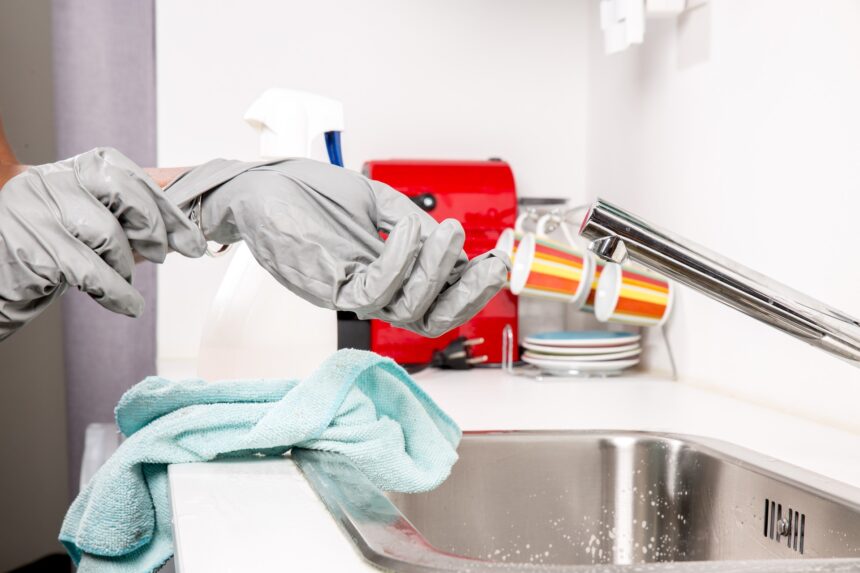In the tapestry of modern life, where every corner of our homes, offices, and public spaces reflects a story, the work of professional cleaners often remains unseen. Yet their impact on our well-being, productivity, and even our perceptions of comfort is profound. From meticulously sanitized environments to perfectly organized spaces, cleaners contribute in ways that go far beyond the visible surface. In this article, we explore the indispensable role cleaners play in shaping our living and working environments.
The Foundation of Cleanliness: Why It Matters
A clean space is not just aesthetically pleasing—it is essential for our health and mental well-being. Dust, allergens, and microbial contaminants can accumulate unnoticed, creating a breeding ground for illnesses. Cleaners serve as the frontline defense against these risks. They implement practices that ensure spaces are not just tidy, but truly hygienic.
Consider the delicate balance of cleaning in public spaces such as airports, shopping malls, and hospitals. These environments experience high foot traffic, making them susceptible to rapid accumulation of germs. Cleaners are tasked with not only managing visible clutter but also addressing the invisible hazards that compromise public health. Their expertise ensures a safe and inviting atmosphere for everyone.
The Art of Cleaning: Skills and Techniques
Professional cleaning goes far beyond wiping surfaces and emptying trash bins. Cleaners employ a combination of science and technique to achieve results that align with stringent standards. For instance:
- Deep Cleaning: This involves targeting areas often overlooked during routine cleaning. From the crevices of office keyboards to the grout between bathroom tiles, cleaners apply specialized tools and products to ensure thorough sanitation.
- Surface-Specific Methods: Not all surfaces can be treated equally. Wood, glass, metal, and fabric require distinct cleaning solutions and techniques. Professionals understand the nuances of these materials, preventing damage while achieving optimal cleanliness.
- Time-Efficiency Strategies: In busy environments like offices, cleaners must work within tight schedules to minimize disruptions. This requires strategic planning and prioritization of tasks, ensuring maximum efficiency without compromising quality.
One notable example of expert service can be seen with a cleaning company in Berlin, where professionals integrate cutting-edge technology with traditional methods to meet diverse client needs. Their tailored solutions highlight the evolving landscape of the cleaning industry.
Behind the Scenes: Tools and Technology
Modern cleaning has evolved significantly, thanks to advancements in tools and technology. The introduction of automated equipment and eco-friendly products has revolutionized the field. Here are some noteworthy innovations:
- Robotic Cleaners: Autonomous machines are now capable of handling large areas such as warehouses and shopping centers. These robots reduce the physical strain on human cleaners while maintaining consistent standards.
- HEPA Filtration Systems: High-Efficiency Particulate Air (HEPA) filters are crucial in environments requiring strict air quality control, such as hospitals. Cleaners use these systems to remove microscopic particles, ensuring cleaner air for occupants.
- Eco-Friendly Solutions: Green cleaning products minimize environmental impact while maintaining effectiveness. Professionals are trained to use these products responsibly, balancing sustainability with cleanliness.
These advancements underscore the evolving expertise required in modern cleaning practices. Cleaners are no longer just custodians—they are skilled technicians with an understanding of both traditional and innovative methodologies.
Psychological Benefits of a Clean Space
The effects of a clean environment extend beyond physical health. Numerous studies highlight the psychological benefits of organized and hygienic spaces. Cleanliness can:
- Boost Productivity: In workplaces, clutter and dirt can distract employees, reducing focus and efficiency. A clean office fosters concentration and encourages a positive work ethic.
- Promote Relaxation: In homes, an organized environment contributes to a sense of calm and relaxation, allowing individuals to unwind after a busy day.
- Enhance Mood: Clean spaces create an uplifting atmosphere. The removal of visible clutter and the introduction of fresh scents can have an immediate positive impact on mood.
Cleaners, therefore, play a vital role in maintaining spaces that support mental and emotional well-being.
Challenges Cleaners Face in Diverse Environments
Each environment presents unique challenges that require adaptive strategies. Whether it’s dealing with hazardous waste in medical facilities or managing delicate surfaces in historical buildings, cleaners must navigate complexities with precision. Examples include:
- Healthcare Settings: Cleaners in hospitals work under strict protocols to prevent cross-contamination. They handle biohazard materials and sanitize equipment critical to patient care.
- Corporate Offices: In addition to maintaining cleanliness, cleaners often address ergonomic factors, such as arranging furniture and clearing pathways to enhance workplace safety.
- Residential Spaces: Deep cleaning in homes involves attention to personal belongings and respecting the privacy of residents. This requires a combination of professionalism and discretion.
The ability to tailor services to these diverse environments demonstrates the adaptability and expertise of professional cleaners.
The Future of Cleaning: Trends and Opportunities
The cleaning industry is poised for continued growth and innovation. Emerging trends include:
- Smart Cleaning Systems: Integration of IoT (Internet of Things) technology allows for real-time monitoring of cleaning processes, ensuring consistency and efficiency.
- Increased Focus on Hygiene: The global emphasis on health and safety, particularly post-pandemic, has elevated the demand for rigorous cleaning standards.
- Specialized Training: As tools and techniques evolve, so does the need for ongoing education. Cleaners receive specialized training to stay ahead of industry developments.
These trends highlight the critical role cleaners will play in shaping the future of our living and working environments.
Conclusion
While the contributions of cleaners often go unnoticed, their work is essential to the spaces we inhabit. They create environments that support health, productivity, and emotional well-being. By combining expertise, technology, and adaptability, cleaners transform spaces in ways that are both tangible and intangible.
The next time you step into a spotless office, relax in a tidy home, or visit a well-maintained public area, take a moment to appreciate the invisible team working tirelessly behind the scenes. Their efforts are the foundation of the comfort and functionality we often take for granted.









